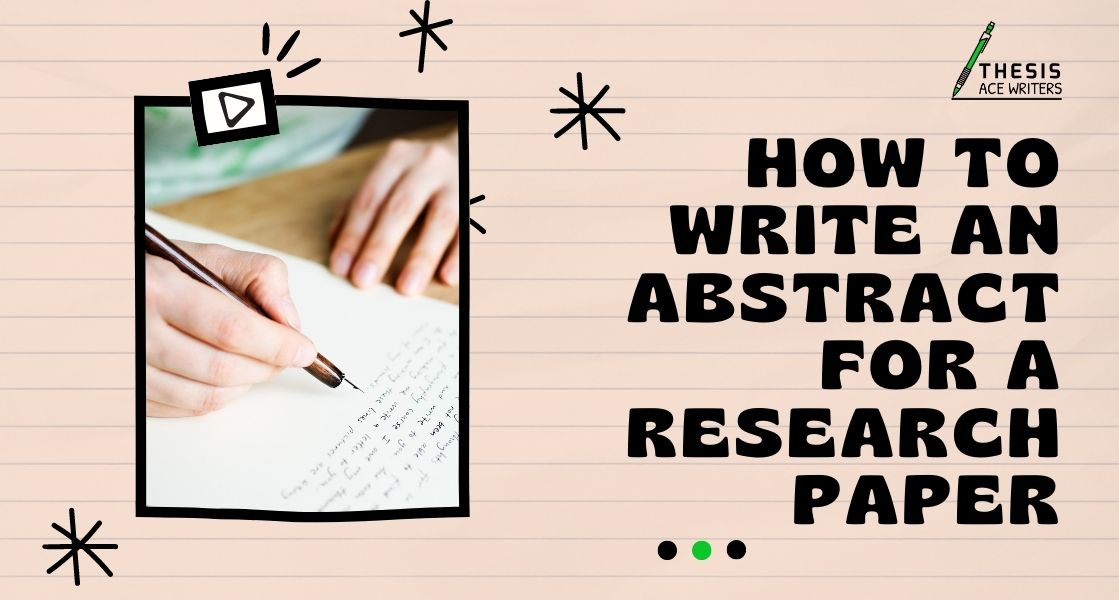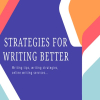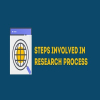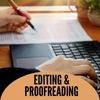
The Meaning and Function of Abstracts:
- An abstract is a brief summary of your research, usually no more than one paragraph (roughly 6-7 sentences, 150-250 words).A strong abstract serves numerous functions.
- An abstract provides readers with a concise summary of your work or article so they can decide whether to read it in full.
- The reader will be ready to follow the exact facts, analysis, and arguments in the body of your article after reading the abstract.
- Moreover, an abstract helps the reader recall the paper's major ideas.
- In addition to the title, abstracts are used by search engines and library resources to find relevant terms for classifying your published paper. So, the information you put in your abstract and title is very important if you want other scholars to be able to find your work or article.
- If you are preparing an abstract for something like a course project, your professor may provide you with precise instructions on what to mention and how to format it. Similarly, academic journals frequently have strict abstract criteria. In addition to observing the criteria in this section, you should also consult and adhere to any course- or journal-specific guidelines.
The subject matter of an abstract is:
Most of the following types of information are condensed into abstracts. Obviously, the content of your work will develop and clarify these principles much more thoroughly. As you'll see in the examples below, the percentage of your abstract that you allocate to each type of information, as well as the order in which that information appears, will vary according to the nature and style of the paper you are summarising. In certain instances, this knowledge is suggested rather than expressly given. The Published Guide of the American Psychological Association, which would be broadly used in the social sciences, has specific rules about what to include in the abstracts of different types of papers, such as empirical studies, literature reviews, theoretical papers, methodological papers, and case studies.
Here are the common types of information present in most abstracts:
- The basis or background knowledge for the research; the broad topic being studied; the topic of your investigation.
- The fundamental issues or explanation of the topic addressed by your research.
- What was previously known about this problem, and what has been done or demonstrated by earlier research?
- Why is it crucial to answer these questions? Describe the primary reason(s), urgency, justification, and objectives of your research. For instance, are you investigating a new topic? Why is this topic important?
- Worthy of investigation? Are you addressing a deficiency in past research? Using innovative techniques to revise existing concepts or data? Resolving a disagreement in your field's literature.
- Research and/or analytical techniques.
- Your principal results, arguments, or findings.
- The consequences or relevance of your results or arguments.
- Your abstract must be comprehensible by itself without requiring the reader to read the full manuscript. And typically, you do not mention sources in an abstract; most of your abstract should convey what you have researched, what you have discovered, and what you say in your paper. You will refer to the specific literature that affected your research in the body of your report.
When to Write an Abstract:
While you might be inclined to compose your abstract initially since it will be the very first section of your paper, you should wait to write it until after you've prepared your entire work so that you understand what you're summarising.
Choosing the verb forms for an abstract:
The abstract of social science research uses the present tense to explain basic statements and judgments that have been and continue to be true, including the prevalent solution for the social issue being investigated. This abstract likewise uses the present tense when describing the methodologies, findings, arguments, and consequences of their research study. The writers describe previous research in the past tense.
The humanities study abstract uses the past tense to define finished events in the past (the texts produced by the science fiction industry during the 1970s and 1980s) and the present tense to define what is occurring in those texts, to explain their significance or meaning, and to define the assertions presented in the article.
In the abstract of a scientific study, the past tense is used to convey what earlier research studies and the authors' own research have accomplished, as well as the methodology and findings. They employ the present tense in their adequate explanation for their study. In addition, they just use the present tense to explain their work and highlight its significance.
Clear and concise writing:
A strong abstract is concise but persuasive, so ensure that every word counts. Each sentence should effectively convey one primary idea.
To make your abstract concise and straightforward:
- Avoid passive constructions, as they are frequently unnecessarily lengthy. By employing the active voice, you may simply condense and clarify your sentences.
- Avoid long sentences. Instead of long sentences, use short phrases or single words, like "in order to" for "to."
- The abstract must be accessible to people who are unfamiliar with the topic.
- Avoid duplication and filler: When possible, substitute nouns with pronouns and reduce superfluous words. It is not expected that an abstract will provide specific definitions, basic information, or comments on the work of other researchers. Include this information in the main body of your dissertation or paper.
Conclusion:
Follow the above steps by understanding them properly; if you are not able to write a perfect abstract for your research, then do it with "Thesis Ace Writers'" professional services, where you can receive assistance from editors if you're having trouble editing to the specified length.





